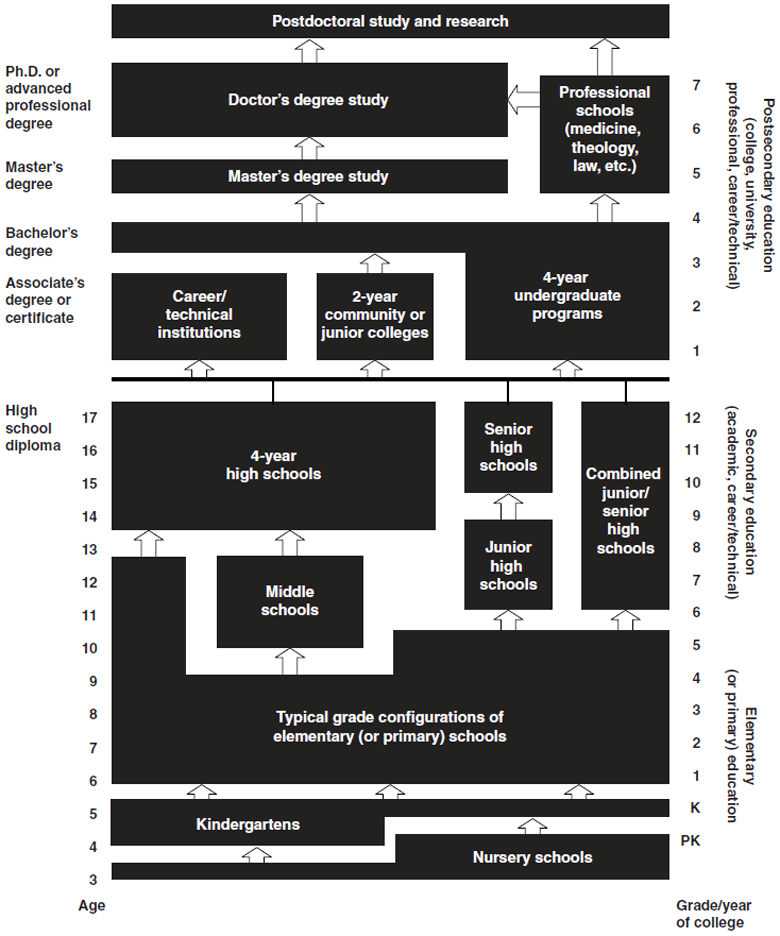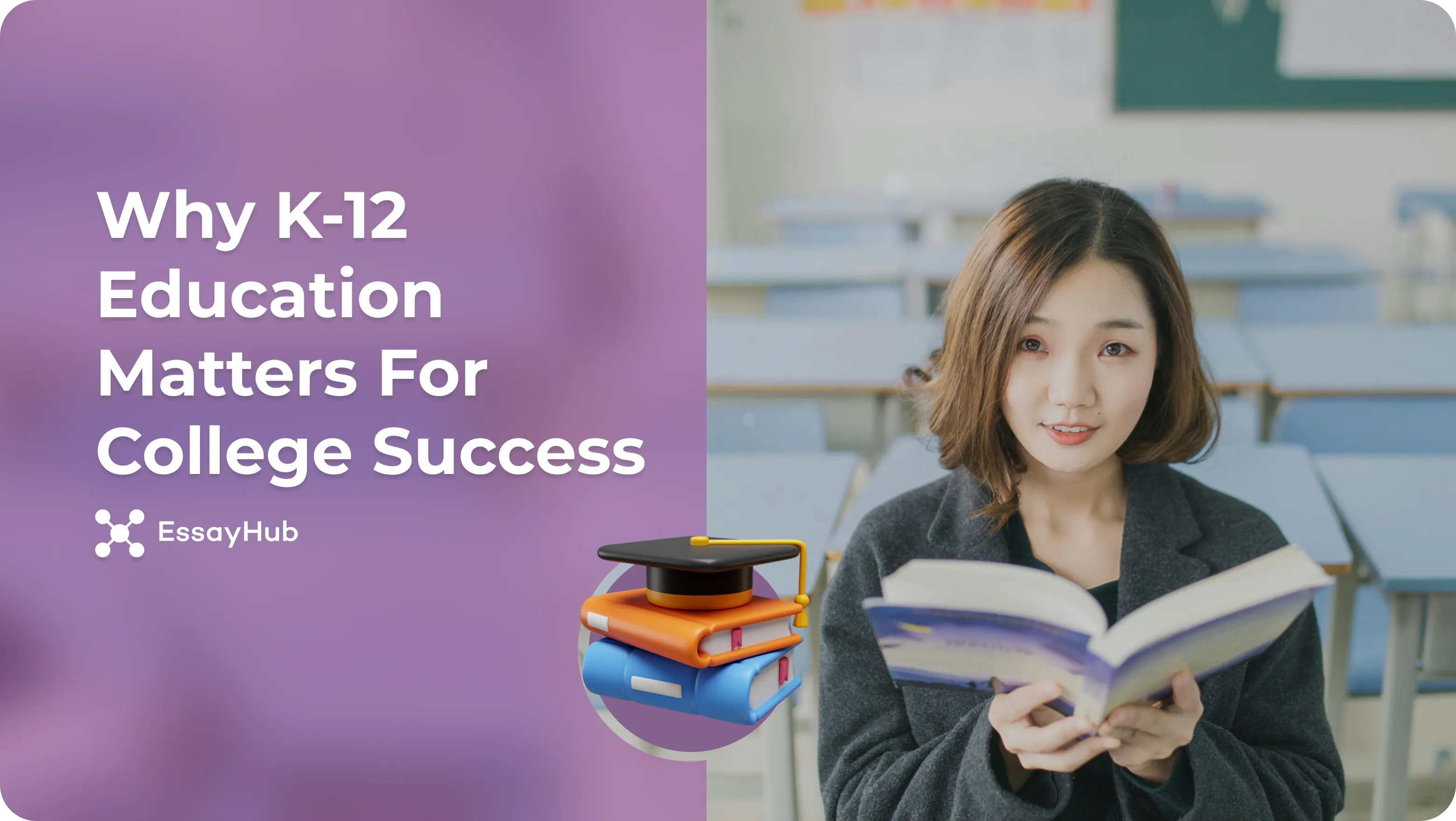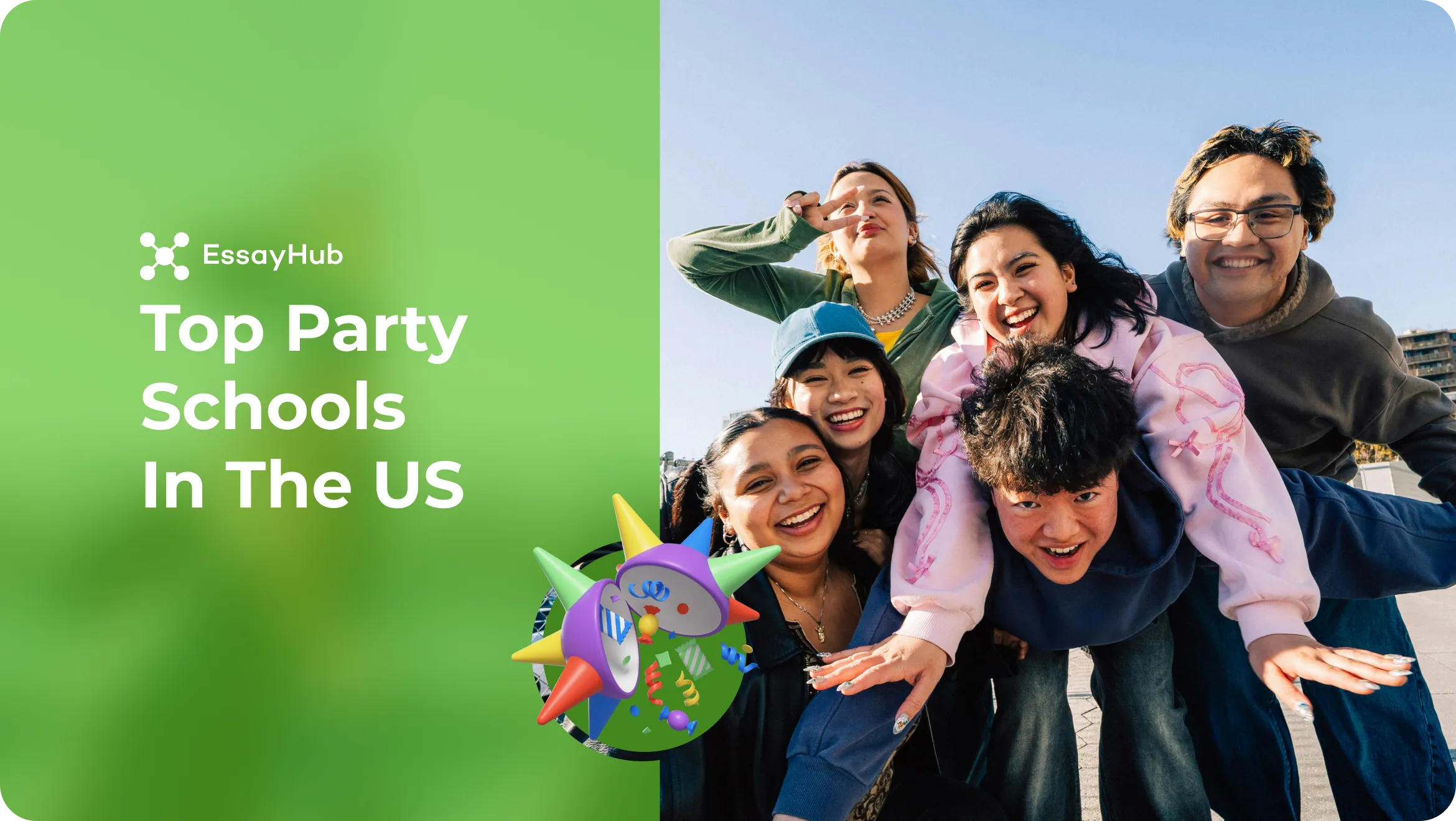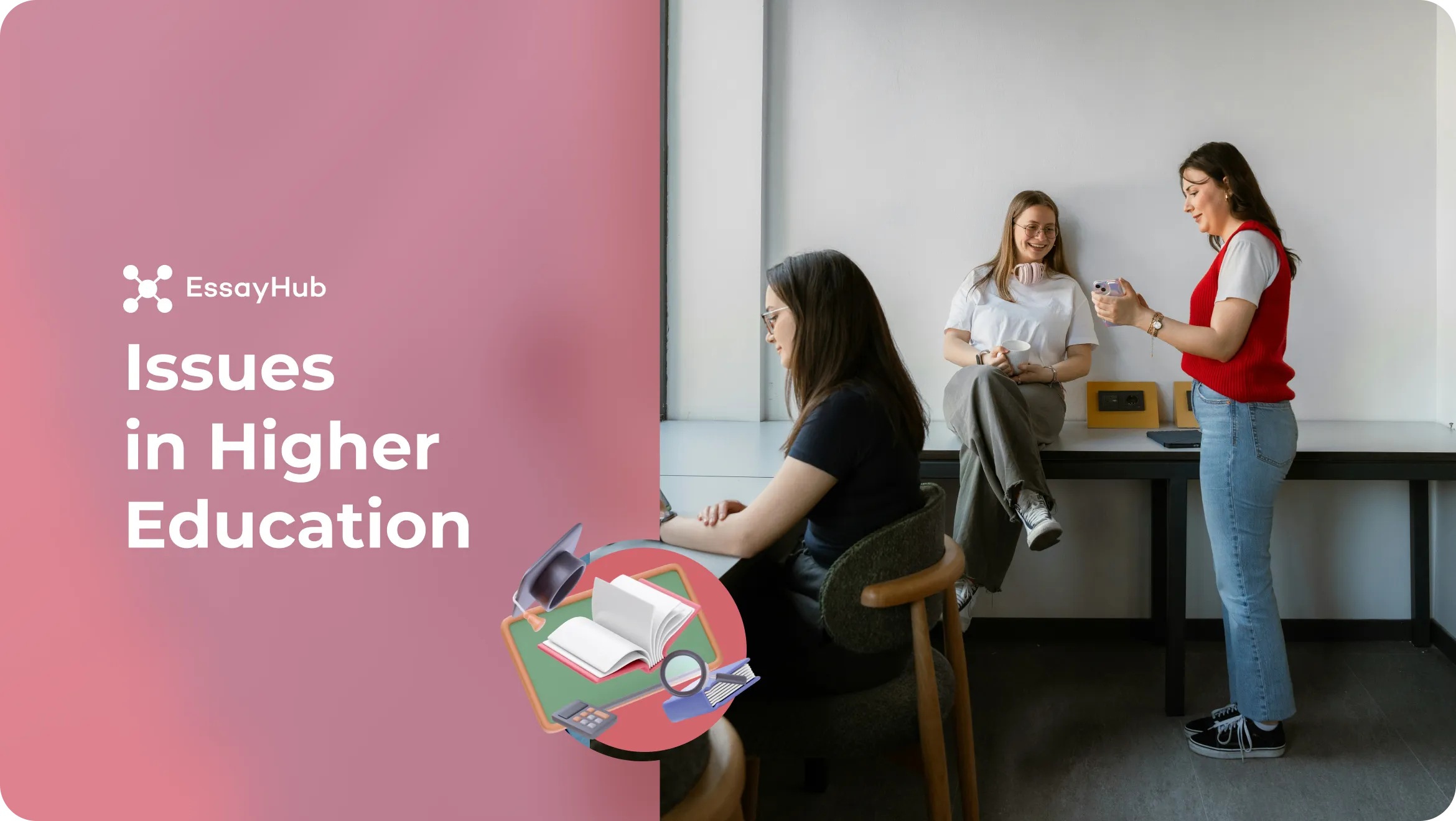American families have plenty of alternatives to public K12 education: private schools, charter schools, and homeschooling are the most noteworthy ones. Yet, 83% of all students attend K12 schools. So, it's not a stretch to say that K12 education, which comprises primary and secondary education, is the backbone of the U.S. education system.
For more than two-thirds of recent high school graduates (68%), college enrollment is the next step in life. High GPAs and test scores, however, aren't the only success factor. Exposure to dual enrollment programs, in turn, correlates with higher enrollment rates (81% vs 70%) and feeling prepared for college.
Here's how K12 schools can help students succeed in college and why we should focus on more than just test scores when assessing college preparedness.
What Is K12 Education?
Before we dive into why K12 education matters for future academic success, let's make sure we're all on the same page regarding the K12 education meaning. In essence, K12 education is a shorthand term for the public school system from kindergarten to the 12th grade. It comprises elementary, middle, and high schools in the United States.
K12 education is free and obligatory in the U.S.: i.e., a child has to attend school between ages 5 and 17 or 18. Their home address determines which K12 school they can attend. The K12 educational system became the nationwide standard in 1965 with the signing of the Elementary and Secondary Education Act (ESEA).
You may also stumble upon terms similar to K12, such as:
- K14: From kindergarten to associate degree
- K16: From kindergarten to bachelor's degree
- K18: From kindergarten to master's degree
- K20: From kindergarten to graduate degree
K12 education spans:
- Primary education: kindergartens and elementary schools
- Secondary education: middle schools and high schools

Here's what students typically learn in K12 schools:
- K-5: Reading, phonetics, basic math, science, social studies, arts
- Grades 6-8: Math, writing, science, history, health, technology
- Grades 9-12: Algebra, geometry, pre-calculus, literature, science, history and civics, electives, test prep
Gaining Foundational Knowledge in K12 Schools
Let's start with the obvious: at the start of their K12 education, children learn basic literacy and numeracy skills, allowing them to read, write, and do calculations later on. In elementary school, both reading comprehension and writing proficiency are in the spotlight, too.
As students move on to their middle school years, however, they also start developing problem-solving, analytical thinking, and critical thinking skills. These skills are crucial in college: in higher education, students are expected to write and submit research-intensive papers, such as research papers and term papers.
This trifecta of skills, analytical thinking, problem-solving, and critical thinking, enables college students to:
- Identify reliable sources of information
- Analyze and synthesize that information
- Find relationships between different facts and sources of information
- Build arguments and draw logical conclusions
On top of that, of course, K12 students also gain foundational knowledge in specific domains, such as:
- Mathematics (including algebra, geometry, and pre-calculus)
- Natural sciences (geography, physics, chemistry, etc.)
- Humanities (history, civics, etc.)
- STEM (sciences, technology, etc.)
The concepts and theories learned in K12 are a necessary prerequisite to taking corresponding courses in college. For example, a college student who enrolls in a calculus class to earn an engineering degree will find it difficult to follow if their K12 math education foundation is shaky.
Learning to Learn in K12 Schools
Yes, homework remains the subject of debate among parents and teachers alike. Americans struggle to agree on whether students receive the right amount of homework in elementary, middle, and high school.
That said, both in-class activities and homework foster yet another crucial skill for college: the ability to study and work effectively on your own. That involves:
- Time and task management (creating study plans, setting goals, breaking large tasks into sub-tasks)
- Active reading and learning
- Self-discipline and organizational skills (avoiding procrastination, meeting deadlines)
- Information retention and recall
- Test preparation
On top of that, K12 education can promote curiosity and make learning fun, thus planting the seed of love for learning itself.
In college, curiosity and love for learning make students' lives easier simply because they won't consider their academic tasks a tiresome chore. The ability to work on their own, in turn, is crucial because there's hardly any hand-holding in college. Students are expected to manage their own time, work autonomously, and meet deadlines.
And what happens if a student doesn't have the skills to meet those expectations? The best-case scenario involves pulling a lot of all-nighters and getting subpar grades for rushed or underbaked papers. The worst-case scenario, in turn, means dropping out or getting expelled.
Developing Interpersonal Skills
Finally, any student will have their fair share of working with others during their time at a K12 school. From group projects in elementary school to debates and team-based extracurriculars in high school, K12 education doesn't lack opportunities for acquiring and strengthening interpersonal skills.
These skills include:
- Teamwork and collaboration
- Leadership
- Conflict management and resolution
- Communication
- Active listening
Transitioning to college typically means moving away and meeting new people. To successfully integrate into this new community, communication skills are a must for making friends and building meaningful relationships with others.
On top of that, group projects and team-based extracurriculars aren't in short supply in college, either. Making the most of them requires being able to collaborate effectively, handle disagreements, and avoid misunderstandings.
College is also a great time to start projects and business ventures, and that typically means working with others. For example, you'll need leadership and teamwork skills if you want to found a startup or organize a charity event.
Interpersonal skills aren't important only during college years, by the way. Communication is the number one sought-after soft skill among professionals, no matter the industry. In 2024, leadership came in third, and teamwork remained on the list under number seven.
3 Priorities for Successful K12 Education
As crucial as K12 learning is for turning children into astute thinkers and engaged citizens, it's clear that K12 education is in trouble. In 2024, 70% of American adults surveyed by EdChoice said they believe that K12 education is on the wrong track.
Key issues? School safety is the obvious front-runner (68%), followed by outdated/ineffective curriculum (42%) and insufficient school funding (41%).
Resolving the dissatisfaction with the curriculum requires shifting our priorities to:
- Fostering love for learning. Turning students into productive learners necessitates rewarding curiosity. Cultivating it can be done via inquiry-based projects and hands-on experiments.
- Embedding the social-emotional learning (SEL). This methodology promotes self-awareness, self-management, social awareness, relationship skills, and responsible decision-making. In practice, incorporating it into the curriculum can involve role-playing exercises, circle times, peer mediation programs, and RULER program activities.
- Focusing on real-world skills. There can be a profound disconnect between what's taught in class and what students actually need in adulthood. We can avoid it by adopting project-based learning.
How College Prep Programs Help
K12 schools also serve as a gateway to specific educational opportunities that can help students succeed in college and beyond. These college prep programs fall into two broad categories:
- Advanced Placement and International Baccalaureate (AP/IB) courses. AP classes offer a more advanced curriculum in a specific subject and allow students to earn college credits while in high school. IB programs cover six subject areas and involve working towards a diploma; however, they're not as widely available as AP courses.
- Dual enrollment programs. These programs, organized by colleges and universities, allow high school students to take postsecondary coursework and earn both high school and college credits. Classes may take place on college campuses or at the student's high school.
In both cases, students can get a taste of college workload with these college prep programs, all while earning extra credits. So, when they make it to college, they're less likely to feel overwhelmed.
4 Ways K12 Education Can Set Students Up for College Success
Some K12 schools already perform better than others when you assess their graduates' college enrollment rates and success in postsecondary education. While factors vary, these four ways seem to be the key things for improving student outcomes beyond K12 education.
Access to Advanced Courses
One survey found that among lower-income schools, those with better postsecondary outcomes are more likely to provide access to AP courses starting in the 9th grade. Another study showed that over 90% students with an AP score of 2 go on to do well or very well in freshman college courses that cover similar material.
Supportive Environment
Income remains the number one predictor of test scores and future success. One way to close the gap between higher-income and lower-income schools is by fostering an environment that supports students in their college aspirations. That can include one-on-one assistance throughout the college application process, including the search for affordable college options.
One-on-One Tutoring
Access to private tutoring is another reason why students from high-income backgrounds tend to perform better in college and beyond. It helps them bridge the gaps in knowledge quickly, thus improving their grades. Lower-income schools can leverage peer tutoring to help students get back on track.
OOPs and Extracurriculars
Participation in outreach and pathway programs (OOPs) also correlates with feeling prepared for college. These programs expose students to postsecondary education opportunities and potential careers and help them navigate the application process. Extracurriculars, in turn, help develop soft and hard skills valuable both during admissions and in college.
In Closing
Without solid foundations, no student can spontaneously start succeeding after they graduate high school. Those foundations vary from the various soft skills developed at K12 schools to the knowledge and college credits gained in AP classes.
We shouldn't forget that K12 education impacts the absolute majority of American students. That's why it needs to start focusing on setting kids up for success in college and in professional life instead of hitting test scores.
What does that mean in practice? Fostering intellectual curiosity, encouraging social-emotional learning, and teaching real-world skills should be our top priorities. At the same time, we shouldn't overlook the importance of peer tutoring, access to AP/IB courses, diverse OOPs and extracurriculars, and college admissions guidance.






